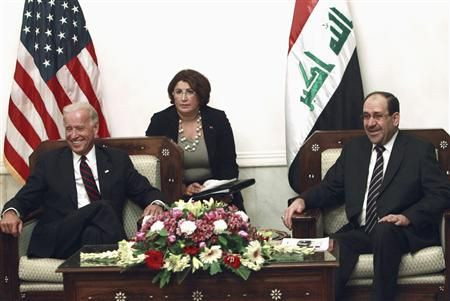Iraq vote standoff dissolves; coalition backs Maliki for PM

Iraqi political parties have broken a record 249-day post-election impasse and agreed to form a government, handing another prime ministerial term to Shia leader Nouri al-Maliki.
Talks brokered by Kurdish regional president Massoud Barzani succeeded late on Wednesday in forming a coalition government, breaking the eight-month political standoff.
Maliki gained the support of the Sunni coalition led by former Prime Minister Ayad Allawi after reportedly promising the post of parliamentary speaker. Allawi, meanwhile, is expected to head the council for national strategy and his Iraqiya party also bagged the foreign ministry. The Kurds, lead by Jalal Talabani, are set to retain the presidency.
The coalition is seen as a brake on the increasing Iranian influence on the region. Allawi's prime ministerial bid was also opposed by Iran in the recent months. Yet, the inclusion of the anti-American Sadrist movement in the Shia Alliance could be of concern to Washington. Lead by Muqtada al-Sadr, the Sadrist movement's Mahdi army has been locked in a constant state of conflict with the U.S. Forces especially in the province of Basra. The new government in Baghdad however, is expected to keep the Sadrists away for key security related posts.
Iraqiya's rejection of Maliki for the top post led to the absence of a majority government in the country. With a series of attacks on Christian minorities in the past few weeks, revelations by 'Wiki leaks' and the US forces set to withdraw from the country next year, observers feared that the region could slip away into a civil war.
The 325-seat Parliament will meet on Thursday to ratify the deal. But analysts say that the new administration would be challenged by the worsening security situation, migration of educated classes and falling economic growth along with running the coalition.
© Copyright IBTimes 2024. All rights reserved.





















